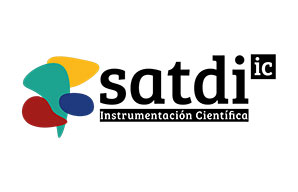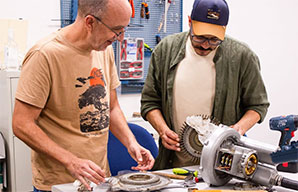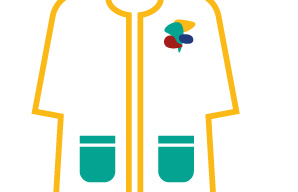Virtual Lab with ‘AI Scientists’ Revolutionizes Biomedical Research
A team of researchers has developed a virtual laboratory powered by artificial intelligence (AI) that promises to transform biomedical research. This digital environment, described in a recent Nature article, enables “AI scientists” to automate and accelerate scientific discoveries, optimizing processes that traditionally required significant time and resources.
The virtual lab integrates advanced machine learning algorithms to analyze large volumes of biomedical data, identify complex patterns, and generate novel hypotheses. This capability allows researchers to rapidly explore multiple directions in their studies, facilitating the identification of new therapeutic targets and the development of more effective treatments.
One of the most notable applications of this system is its ability to analyze genomic and proteomic data, leading to a deeper understanding of complex diseases such as cancer and neurodegenerative disorders. By automating the analysis of these data, the virtual lab significantly reduces the time required to transition from basic research to clinical application.
Moreover, this AI-based approach fosters interdisciplinary collaboration, as models can be trained with data from various scientific fields, integrating knowledge from biology, chemistry, computer science, and medicine. This synergy facilitates the creation of innovative solutions to complex biomedical problems.
However, the researchers emphasize that the implementation of these “AI scientists” is not intended to replace human scientists but to complement their work. The interpretation and validation of AI-generated results remain the responsibility of human experts, who provide the necessary context and expertise to translate findings into practical applications.
In summary, the creation of this AI-powered virtual lab represents a significant advancement in biomedical research, offering tools that accelerate scientific discovery and enhance interdisciplinary collaboration. As technology continues to evolve, we are likely to see even greater integration of artificial intelligence across various scientific fields, expanding the frontiers of human knowledge.







